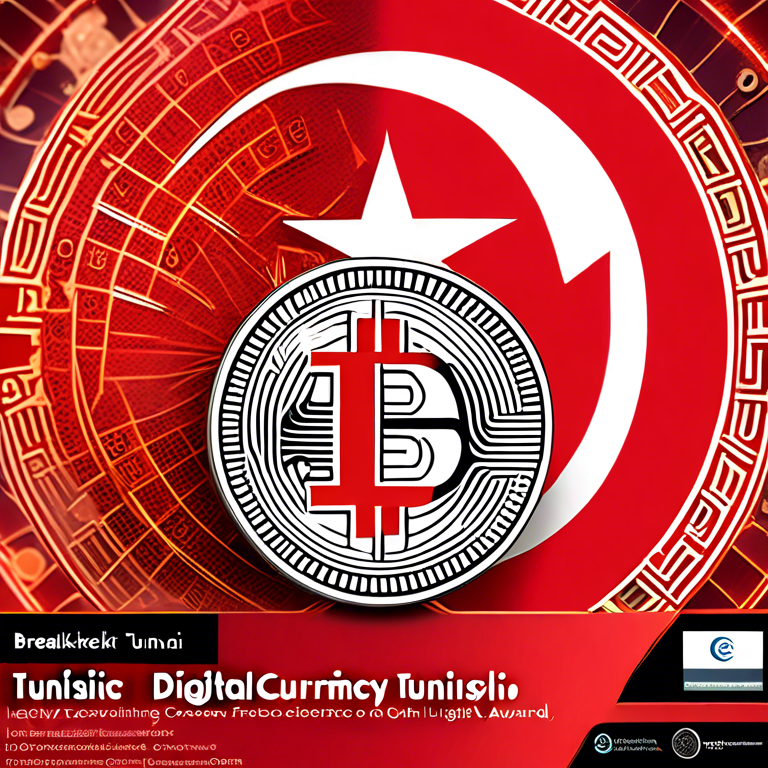This article delves into the emergence of cryptocurrency in Tunisia, exploring its adoption rates, regulatory landscape, and the challenges faced in integrating digital currencies into the financial system.

Understanding Cryptocurrency in TunisiaExchange
Cryptocurrency has experienced a global boom, and Tunisia is no exception to this trend. As more individuals and businesses recognize the potential of digital currencies, several factors contribute to their increasing adoption in this North African nation. The understanding of cryptocurrency must start with its fundamental concept: a digital or virtual currency that uses cryptography for security, which makes it difficult to counterfeit. As an alternative form of money, cryptocurrencies are decentralized and operate on technology called blockchain, which is a distributed ledger enforced by a network of computers (called nodes).
The Growth of Cryptocurrency Adoption in Tunisia
The growth of cryptocurrency adoption in Tunisia can be attributed to various factors. Firstly, the Tunisian economy, which has faced challenges such as inflation and unemployment, has led individuals to seek alternative financial solutions. Cryptocurrencies offer an option for those looking to safeguard their assets or invest in a more stable value compared to the local currency. Additionally, the emergence of fintech companies has played a pivotal role in facilitating cryptocurrency transactions, making it easier for users to buy, sell, and trade digital assets.
Moreover, Tunisia made headlines as the first country in the world to launch a Central Bank Digital Currency (CBDC
), called the e-Dinar. This governmental initiative indicates a proactive approach towards digital currency adoption and integrating it into the broader financial ecosystem. The e-Dinar is designed to modernize the financial sector in Tunisia, enhancing financial inclusion and ensuring secure transactions.
Regulatory Landscape for Cryptocurrency in Tunisia
The regulatory landscape surrounding cryptocurrency in Tunisia is still developing. While the Central Bank of Tunisia has acknowledged the rise of digital currencies, it has also issued warnings regarding their speculative nature and potential risks. The government is keen to establish a legal framework to govern digital currencies, which strikes a balance between protecting consumers and fostering innovation within the fintech space.
Despite regulatory uncertainties, Tunisia’s entrepreneurial spirit has allowed many start-ups to emerge, focusing on blockchain technology and cryptocurrency services. However, the absence of clear regulations does pose risks for investors and users alike, leading to concerns regarding cybersecurity, fraud, and megabit volatility. Creating a robust regulatory framework will be crucial for sustaining the growth of cryptocurrency and promoting confidence among investors.
Challenges and Future of Cryptocurrency in Tunisia
Like many regions, Tunisia faces several challenges regarding cryptocurrency. Public awareness and understanding are still relatively low, limiting the broader adoption of digital currencies. Educational initiatives are required to inform the populace about the benefits and risks associated with cryptocurrency investment and usage. Furthermore, technical challenges, such as the need for reliable internet access and technological infrastructure, may hinder adoption rates in rural areas.
Looking ahead, the future of cryptocurrency in Tunisia appears promising yet demanding. With increasing interest from both individuals and businesses, along with government initiatives like the e-Dinar, the landscape for digital currency is rapidly evolving. As regulatory clarity improves and educational efforts take root, Tunisia could pave the way for a robust cryptocurrency ecosystem that enhances its economic stability and growth.
In summary, Tunisia’s journey towards cryptocurrency adoption is marked by an interplay of opportunities and challenges. As interest in digital currencies continues to grow, it is essential for the government, businesses, and consumers to work collaboratively for a sustainable cryptocurrency framework that benefits all stakeholders.
